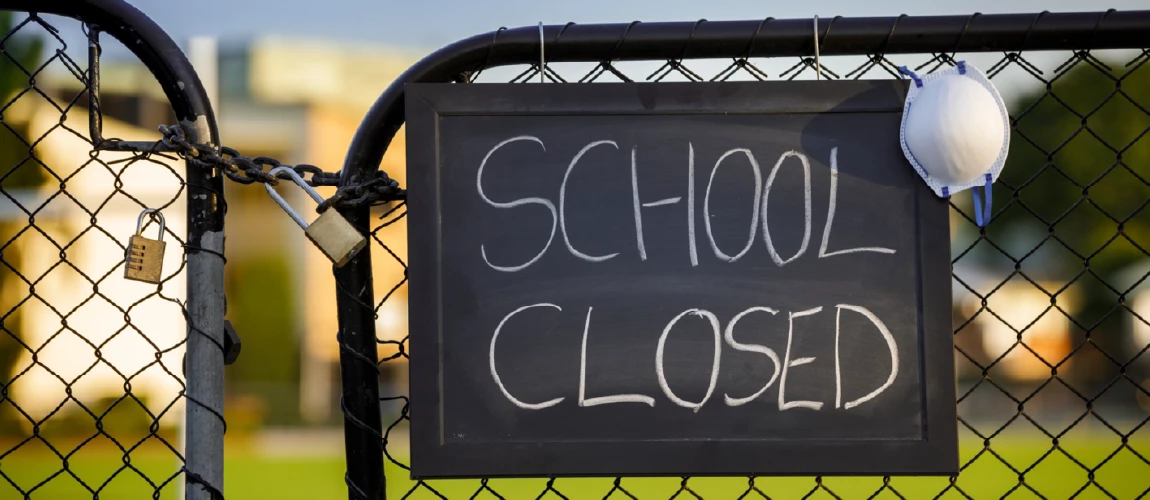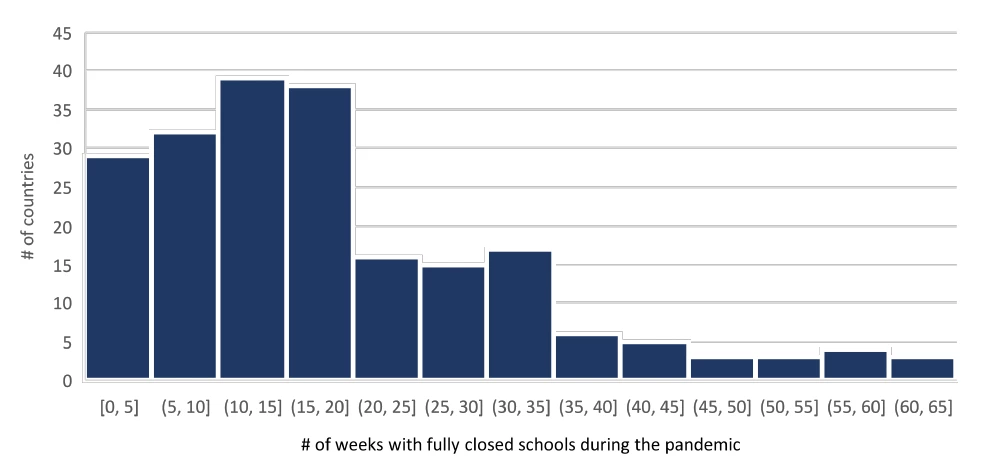 Zorro Stock Images/Shutterstock.com
Zorro Stock Images/Shutterstock.com
A generation of students across the globe will likely suffer lifelong losses to their earning potential because of the closure of schools and universities due to the COVID-19 pandemic . The Kuwaiti experience of extended closures due to the 1990 Gulf War shows just how costly these school closures can be.
In a recent World Bank working paper, we found that the school closures mean that Kuwaiti boys in elementary school today face an average present value of lifetime income reduction of more than $40,000. For girls, it is almost $21,000 (both measured in 2019 US$) . That compares to Kuwait’s GDP per capita of about US$32,000 in 2019. The estimates predict that students affected in their primary, intermediate, or secondary level will lose between US$1,589 and US$3,722 of earnings each year over their working lives. Put another way, future earnings reductions due to the school disruptions are between 3.4 and 6 percent.
It is useful to compare the paper’s results with those of other simulations of the effects of the COVID‑19 education shock. Using data from the OECD’s Survey of Adult Skills (PIAAC), researchers found that a learning loss of one year would lead to lost individual income of between 4.6 and 16.7 percent depending on the country, or about 7.7 percent when the data from all PIAAC surveys are pooled. In another recent study of school disruptions, this time using global data, researchers found that students in the current cohort face a reduction of US$366 to US$1,776 in yearly earnings over their working lives (measured in 2017 PPP-adjusted US$).
As Jaime Saavedra, the World Bank’s Global Director for Education, said, “The COVID-19 crisis brought education systems across the world to a halt … and the potential increase of Learning Poverty might have a devastating impact on future productivity, earnings, and well-being for this generation of children and youth, their families, and the world’s economies.”
Long school closures in Kuwait
Kuwait is among the countries with the longest school closures for in-person education caused by the COVID-19 pandemic (Figure 1). Public schools were closed for in-person learning for 62 weeks nationwide between February 26, 2020, and October 2021, when they reopened. Further, public schools did not begin fully remote schooling until more than seven months after the last day of in-person schooling. As in many countries, the remote learning system was hurriedly put together by the government. Unfortunately, the benefits of even well-functioning remote learning are likely below those of in-person schooling. Dr. Khaled Mahdi, Secretary-General of the Kuwait’s Supreme Council for Planning and Development highlighted the need for a concerted effort to address the large education gap.
Figure 1: Distribution of the length of school closures during the pandemic across countries
Note: As of November 2021, Kuwaiti schools had 62 weeks of closures.
Source: UNESCO
Parents of Kuwaiti children, like parents in almost every other country, worried about the impact of the school disruptions on their children’s future. However, determining the impact is difficult given the long periods over which education investments pay off. The results of today’s education decisions, whether made by government or by families, by their nature only become fully visible after years or even decades.
Building on previous work on the long-term impacts of schooling disruptions in Kuwait, the estimates presented above quantify the likely impact of the pandemic-related school closures on Kuwaitis over a long time horizon. This quantification exploits the similarity between the schooling disruptions caused by the Gulf War (1990–91) and the schooling disruptions caused by the COVID-19 pandemic.
Learning from the Iraqi invasion and its aftermath
When Iraq invaded Kuwait in August 1990, Kuwait’s schools had to shut down for the 1990/91 school year. This naturally kept some students out of formal schooling and only those who could emigrate could continue their education abroad. The following school year was used to restore damaged school infrastructure and accelerate schooling to enable students to catch up. Given the acceleration, students did not lose any schooling in nominal terms (students were not held back a grade), and they remained on their prewar academic paths. However, the disruption led to lower school attainment—lower average years of schooling.
The schooling disruption caused by the Gulf War is analytically useful because it occurred almost 30 years ago, which means all its effects on labor market outcomes have been exhausted . The mentioned working paper exploits this fact and estimates the lost salaries of Kuwaiti nationals who ended up working in Kuwait’s civil service. Using a unique and rich data set of all civil servants, the paper finds that the disruption’s harm was indeed significant and lasted throughout people’s working lives. Since Kuwait’s civil service employs more than 60 percent of working Kuwaitis, this is a broadly applicable finding to Kuwaiti nationals.
A Call to action
Given the gravity of the problem, there is an urgent need to mitigate the prospective harms to students. A recent joint UNESCO, UNICEF, and World Bank report offers a three-pronged set of evidence-based interventions to accelerate learning. First, it suggests using the learning crisis to adjust curricula to existing learning levels rather than returning to overly aspirational learning outcomes of the pre-pandemic curricula. Second, it argues that learning losses can be recouped through extending instructional time, such as extending the school day or the school year. Third, it lists interventions proven to increase the efficiency of learning. One such intervention is targeted instruction, in which teachers present material according to the learning level of students rather than according to students’ age.




Join the Conversation